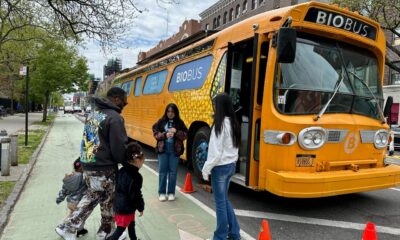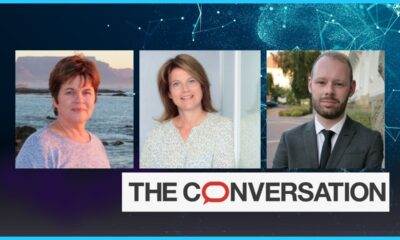Stories in Science Special Series
Hispaniola Born Earthbound Explorer
I thought my biggest role in life was to become a wife and mother. As such, I ended up in a very toxic marriage right out of high school. I left the marriage and I ultimately became homeless. I actually became the first woman in my entire family line to ever leave her husband.

– Rose Ferreira –
I‘ve always craved a deeper understanding of the world around me. This was a need that was never fully satisfied and it actually became a huge source of anxiety during my early years. Why? Well, I was born in a country where science was basically undervalued. What I’m about to share may seem “too personal” for some. However, I’ve found that struggles can be used to inspire rather than act as obstacles or means to discriminate. Sadly, the latter is something I’m quite familiar with.
I decided to become unapologetic about my life because not everyone is born into good circumstances or is able to follow “traditional” paths in life. Some individuals rely on survival to even dare to dream. Perseverance can become one’s greatest power. High school in the U.S. was a huge culture shock for me. It started with the fact that I was supposed to begin my studies in 12th grade, but was told that I would be sent back 2 – 3 yrs due to the fact that I wasn’t fluent in English. In the end, I actually ended up leaving high school all together and decided to get a General Equivalency Diploma (GED) instead.
I thought my biggest role in life was to become a wife and mother.
This all came after living between my country of birth (Dominican Republic) and the U.S. for the first half of my life. I was confused and did not feel like I belonged anywhere. My misguidance over my “duties” as a woman coupled with society’s mixed messages didn’t help. I thought my biggest role in life was to become a wife and mother. As such, I ended up in a very toxic marriage right out of high school. I left the marriage and I ultimately became homeless. I actually became the first woman in my entire family line to ever leave her husband.

While homeless and simultaneously fighting for the right to keep my own child, I stumbled upon a newspaper at a train station in New York City. Inside, there was an ad for Home Health Care which didn’t even make sense to me at the time. The ad stated that training and placement would be provided. The ad even mentioned that I could even pay them back with work hours. So the next day, I went into a public restroom, cleaned myself up, and hopped on a train to apply for this training. They accepted me and every day like clock work, I slept at train stations, cleaned myself up in public restrooms, and showed up for training. Time flew by quickly and within a month, I was done.
Thankfully we had to wear scrubs which I was allowed to pay for after the training. As such, I had something to wear every day. Finally, I started working as a Home Health Aid six days a week, 12 hours a day at $7.25 per hr (this was back in 2008 by the way) until I saved enough to get a room. Working all those hours was of course very exhausting. A lot of times, work conditions were very unsafe and I even got hurt on a few occasions.
I was barely making any money and constantly being around death took a big toll on me. Yet, at night I still dreamed of someday becoming a scientist. I did not even know how or if someone like me could ever become a scientist. With time, I decided to change course so that I could earn more money and maybe finance my studies. I ended up earning an Associates in Medical Assisting with some side certifications. The pay wasn’t much better, and I was now in debt due to student loans.
For a brief period, I even considered medical school. I researched the needed prerequisites, spoke to a few universities within Manhattan , and even started looking for MCAT tutoring. I loved science, but by then, I had learned the hard way that titles mean nothing when one needs to survive. Staying within the field I know was the smartest choice I made. Even though I stayed in the medical area, I refused to give up my “true calling” of becoming a scientist. I kept researching for affordable education, and aimed to finance it through my medical work. I wanted to attend a private university, pursue a space related field, but I quickly learned that the prestige of a big name university came with a huge prize tag. So I found a public institution within my means, did all the research needed, saved, and made the decision to go for it and start my path to science.
I was naïve. I thought I’d walk in there, ask about studies in science, and get some advice. I was under the impression that elitism had no place in science. Instead, I got discouragement. I had at least 4 advisors tell me that maybe science would be “too much for me”. One even told me that they were advising me against it because they didn’t want to set me up for failure. It was as if I was somehow predisposed to fail because I wasn’t what’s called a “conventional student”. But I didn’t listen and I enrolled anyway. I had tears in my eyes when I entered the biology lecture hall for the first time.
It’s been an arduous road to say the least. But through a lot of hard work, I am finally “settled” with my son. I’m hoping to someday merge my biggest passions: space, and neuroscience. Unfortunately, this all came to a halt in January 2017 when I got struck by a car. Thankfully, I survived with my full mental capacity. But this accident put a halt on my plans and affected every single aspect of my life. Nevertheless, I continued to persist. To aid my mental health during the rehabilitation process, I started to use my Twitter to not only advocate for science communication – and the importance of representation for women of color in STEM – but to challenge many of the stereotypes that hold us down.
Maybe I am my birthplace’s oddity. But perhaps to others (specially girls), I can become the inspiration I needed when I was younger. I ended up becoming my own role model because I had to. I am proud to be a Hispaniola born earth-bound explorer out to break some stereotypes.
About Rose Ferreira: I’m currently working with a private company in downtown Manhattan, providing personalized care as well as Alzheimer’s and Dementia care. Though on leave due to my accident, once back, my plan is to continue my studies at CUNY Baccalaureate where they will allow me to combine concentrations. My goal is to incorporate at least one of my focus fields (neuroscience) into my work life in patient care and Alzheimer’s research.
You can Follow Rose on Twitter @ _Astro_Nerd_and her website. Cover Photo by Pexels from Pixabay | CC0 Creative Commons
The CS Media Lab is a Boston-anchored civic science news collective with local, national and global coverage on TV, digital print, and radio through CivicSciTV, CivicSciTimes, and CivicSciRadio. Programs include Questions of the Day, Changemakers, QuickTake, Consider This Next, Stories in Science, Sai Resident Collective and more.

-
Audio Studio1 month ago
“Reading it opened up a whole new world.” Kim Steele on building her company ‘Documentaries Don’t Work’
-
 Civic Science Observer1 week ago
Civic Science Observer1 week ago‘Science policy’ Google searches spiked in 2025. What does that mean?
-
Civic Science Observer1 month ago
Our developing civic science photojournalism experiment: Photos from 2025
-
Civic Science Observer1 month ago
Together again: Day 1 of the 2025 ASTC conference in black and white
Contact
Menu
Designed with WordPress
























